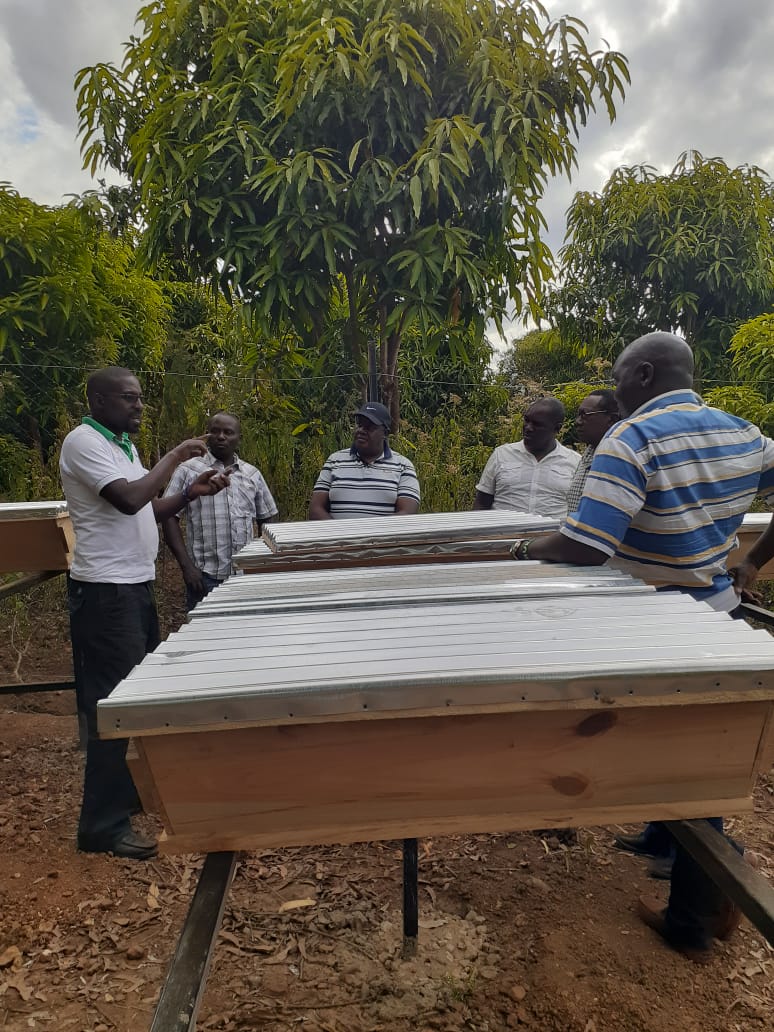Beekeepers from Tana River County are recording increased honey production and incomes with modern beekeeping kits thanks to their efforts to form themselves in marketing groups which is also seeing them enjoy economies of scale.
The beekeepers have always used the rudimental log hives for beekeeping. The total number of log hives in previous years was 1160. Honey yields from the log hives averaged 5kgs per hive each season against an optimum production level of 15kilos of the same.
With two seasons per year, this translated to 10 kilos for each log hive every year. The farmers also individually sold the honey either in crude or semi-refined form to middlemen from Bura and Garissa Towns and earned meagre returns.
But an initiative to form themselves in marketing groups is finally paying off for the last three years. The number of log hives has increased from 1160 to 1740 with the introduction of the superior Langstroth hives efficient in honey production moving from zero to 170.
The result has increased volumes of better quality honey. The beekeepers are also now processing their own honey and packaging it.
The main markets are Bura and Hola Towns. Far off markets include Garissa, Mombasa, and Nairobi. The group sells the processed honey at Sh150 per kilo and makes a much bigger margin compared to the Sh60 they were getting before the KAPP intervention.
RELATED CONTENT: Beekeeping project entice farmers with quick money

Farmers being trained in the best beekeeping practices.Photo courtesy.
The group has opened a Bank account and this has encouraged members to save.
Other than honey, the group is also processing beeswax. However, due to challenges of quality, they are not getting optimum prices for the wax and they require a wax extractor.
Brokers have, however, not given up and still entice a few members to sell to them directly thus breaking group rules.
RELATED CONTENT: Beekeeping side-hustle earns Masinga youth Sh58,000 monthly
Key challenges facing the group are persistent drought, charcoal burning which interferes with nectar collection by the bees, strong middlemen, numerous charges such as; the Kenya Bureau of Standards annual levy of Sh1,000, public health premises inspection fees of Sh3,000 and medical checkup fee of Sh300 person every six months.
But even with the challenges the beekeepers are soldiering on because the benefits far outweigh the challenges.
“I have gotten a life I never imagined I would live. I am comfortably educating my children, and have extra money left which I invested in fresh produce farming. I look forward to growing more with this initiative,” said Joram Kebaso one of the pioneer members.
RELATED CONTENT: Youth turns beekeeping hobby into a Sh700,000 agribusiness venture
















Comments powered by CComment